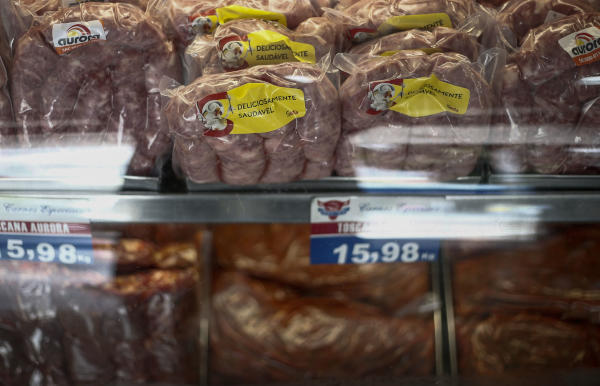Egypt announced on Saturday that it has resumed imports of Brazilian meats, two days after it said it was suspending them until the meat was confirmed safe for consumption.
The agriculture ministry said in a statement it had resumed imports from authorized Brazilian slaughterhouses, adding shipments would be subject to checks both in the country of origin and on arrival in Egypt.
Brazil has been investigating how meatpackers allegedly paid off inspectors to overlook practices including processing rotten meat, shipping exports with traces of salmonella and not carrying out inspections of plants.
The companies involved have denied any wrongdoing in the scandal and authorities have said that no cases of death or illness have been linked to the tainted meat investigation.
Saudi Arabia had announced Thursday a decision to stop importing beef and poultry products from four Brazilian companies over the scandal.
The statement listed the affected companies as JJZ Alimentos SA, Frango Dm Industria e Comercio de Alimentos Ltda, Seara Alimentos, a subsidiary of JBS, the world’s biggest meatpacking company, and BRF SA, the world’s biggest poultry exporter.
Reuters said that following a two-year investigation of Brazil’s meatpacking industry, police have accused more than 100 people, mostly health inspectors, of taking bribes for allowing the sale of rancid products, falsifying export documents or failing to inspect meatpacking plants.
Brazilian beef exports to Saudi Arabia in the first 10 months of 2016 totaled almost 24,000 tons, according to a study by Meat and Livestock Australia, a research service quoted by Reuters.
Brazil’s meat exports have meanwhile fallen sharply since the scandal emerged.
Restrictions by several key importers of Brazilian meat, ranging from China to Europe, caused a 22 percent drop in weekly average exports of pork and poultry since news of the federal police probe broke on March 17 compared to prior weeks, the Brazilian Animal Protein Association said.
The group did not provide beef export figures. Brazil’s overall meat exports generate nearly $14 billion annually, and any drop in foreign shipments could stir new headwinds for the country’s recession-hit economy.
Fallout from the scandal grew on Friday as officials in Hong Kong called on supermarkets to stop selling meat from 21 Brazilian plants targeted by police. China also agreed to lift restrictions on Australian beef imports, adding to competition for Brazil in one of the world’s fastest-growing markets.
